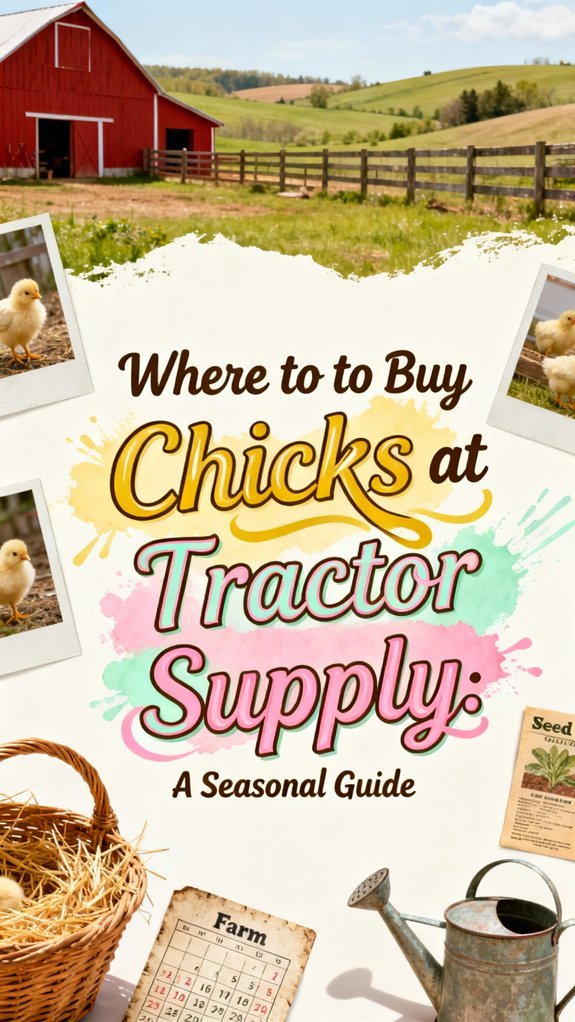While possums can visit your chicken coop, they don’t typically pose a serious threat to healthy adult chickens. These nocturnal creatures primarily scavenge for eggs, fallen feed, and already deceased birds rather than actively hunting live poultry. You’ll face greater risks from predators like raccoons or foxes. However, it’s still important to secure your coop with hardware cloth and proper latches – understanding the real risks will help you implement the most effective protection measures.
Understanding Possum Behavior Around Chicken Coops
While opossums are often misunderstood creatures, their behavior around chicken coops follows distinct patterns that chicken owners need to recognize. These nocturnal mammals frequently seek shelter in coops, particularly during harsh weather conditions, leading to potential opossum nesting scenarios that require your attention.
What’s particularly significant is their complex relationship with chickens. You’ll find that opossums can display varying levels of chicken coexistence, sometimes sharing space without immediate aggression. However, don’t let this peaceful behavior deceive you. When food sources become scarce, opossums may target eggs and occasionally attack chickens, especially during nighttime hours. They’re opportunistic feeders who’ll assess your coop’s vulnerabilities, often entering through unsecured openings. Using a gentle nudge with a stick can help safely remove them from your coop when discovered. Understanding these behavioral patterns is essential for implementing effective protection measures.
Signs of Possum Activity Near Your Flock
Recognizing four distinct signs of possum activity around your chicken coop enables early detection and prevention of potential threats. Through paw print identification, you’ll notice their distinctive five-toed tracks, including a thumb-like toe on hind feet. Droppings differentiation is essential; look for cat-like scat with pointed ends near the coop or frequent pathways. You’ll find evidence of climbing attempts through claw marks on fencing and coop structures, often accompanied by minor digging activity around the perimeter. Watch for signs of raids, including damaged eggs with messy remains and potential injuries to birds, particularly neck and bowel lacerations. To confirm possum presence, examine your property for environmental attractants such as accessible pet food, water sources, or fallen fruit that may draw them to your coop area. Like rats, possums are attracted to accessible food sources around coops, making it essential to secure feed storage and minimize waste. To protect your flock, consider installing chicken wire underground to prevent burrowing animals from gaining access beneath the coop structure. Since opossums are primarily nocturnal creatures, monitoring your coop during nighttime hours is crucial for detecting their presence.
Real Risks vs. Common Misconceptions
To accurately assess possum threats to backyard chickens, it is crucial to separate documented risks from popular misconceptions. While possums’ behavior can include attacking sick, injured, or young chicks, they rarely target healthy adult chickens. You’ll find that possums are opportunistic scavengers rather than aggressive predators, primarily consuming insects, rodents, and carrion. With their low body temperature, possums are naturally resistant to rabies, making them less of a health concern compared to other wildlife predators.
During winter or food scarcity, chicken vulnerability increases as possums may seek alternative food sources. They might raid coops for eggs or nesting materials, and in unsecured environments, possums can cause multiple chicken losses. However, they’re often wrongly portrayed as vicious predators when they actually help control pests that affect your flock. Possums can actually benefit your backyard by consuming the same insects and rodents that threaten stored chicken feed or pellets. Understanding this balance helps you make informed decisions about protecting your chickens while recognizing possums’ beneficial role in your backyard ecosystem. Implementing good management practices alongside natural pest control creates a healthier environment for your flock while maintaining ecological balance.
Essential Security Measures for Your Chicken Coop
Protecting your backyard chickens from possums and other predators requires implementing multiple layers of physical security around your coop. Start with robust coop construction using sturdy materials and elevate the structure off the ground. Install 1/4″ to 1/2″ hardware cloth instead of standard chicken wire, as it’s more resistant to predator entry. Motion-activated lights can effectively startle and deter nocturnal predators from approaching your coop.
For effective predator proofing, incorporate two-step lockable latches on all doors and seal any gaps larger than 1/4″. Install an underground apron of hardware cloth extending 18 inches deep and 3 feet outward from the run. Consider adding electric fencing with multiple strands at varying heights, maintaining at least 5,000 volts. Secure the hardware cloth with screws and washers rather than staples to ensure strong predators cannot tear through the barrier. Position your coop in a visible area away from dense vegetation where predators might hide. During times when fresh food options are limited, providing nutritious treats like ripe persimmons can help maintain your chickens’ immune system and overall health while they remain safely contained.
Natural Deterrents and Prevention Strategies
While physical barriers provide essential protection, natural deterrents offer an additional layer of defense against possum intrusion. You’ll find that strong spices like garlic, black pepper, and cinnamon create effective natural repellents when scattered around your chicken areas. Citrus peels and ammonia-soaked rags also emit scents that possums actively avoid. Since possums are primarily nocturnal creatures, implementing deterrents during evening hours is particularly important for protecting your flock.
Light and noise serve as powerful deterrents, with Christmas lights and radio sounds disrupting possum activity patterns. You can enhance these effects by strategically positioning bright lights and speakers near coop access points. When combined with proper environmental management, such as securing garbage bins and removing fallen fruit, these methods considerably reduce possum attraction to your property. If needed, effective traps can be employed under local wildlife control guidance for humane management.
When to Take Action Against Possum Visits
Although possums aren’t typically aggressive predators, specific signs indicate when immediate action becomes necessary to protect your flock. You’ll need to respond quickly if you find birds with injuries around their vent area, missing feathers, or if eggs consistently disappear overnight. Multiple chicken deaths within a short period particularly warrant intervention.
Immediate actions should include securing your coop by reinforcing weak points and installing better latches. For long term solutions, you’ll want to eliminate attractants like food scraps and fallen fruit near the enclosure. These nocturnal creatures are most active during nighttime hunting hours, making dusk-to-dawn security essential. If you observe possums frequently near your coop after dark, or your chickens display unusual roosting behaviors, implement enhanced security measures. Pay special attention during winter months when possums may be more desperate for food. Unlike opossums, raccoons and mink are known to kill multiple birds in a single attack, making them even more dangerous predators. While possums may seem less threatening than other predators, comprehensive predator management requires vigilance against multiple threats to ensure your flock’s safety.
Balancing Predator Control With Ecosystem Benefits
Since possums provide significant ecological benefits through pest control and carrion removal, you’ll need to carefully weigh their positive environmental impact against any potential threat to your chickens. These marsupials play an essential role in predator ecology by controlling populations of slugs, snails, and rodents that can damage your garden. Their scavenging behavior helps reduce disease vectors by cleaning up carrion.
When it comes to chicken predation, research shows that possums rarely target well-protected flocks. Their ecosystem functions far outweigh their minimal threat to poultry. You can maintain these ecological benefits while protecting your chickens by implementing secure coop designs and non-lethal deterrents. Focus on prevention through proper infrastructure rather than removal, as possums contribute more to your backyard’s ecological balance than they detract from it. Unlike raccoons and weasels, which kill multiple chickens and leave bloodied carcasses behind, possums are much less aggressive predators. Ensure your chickens have consistent access to water, as they can only survive 12 to 48 hours without it depending on temperature conditions. Research has shown that possums primarily target eggs and chicks when they do breach coops.






